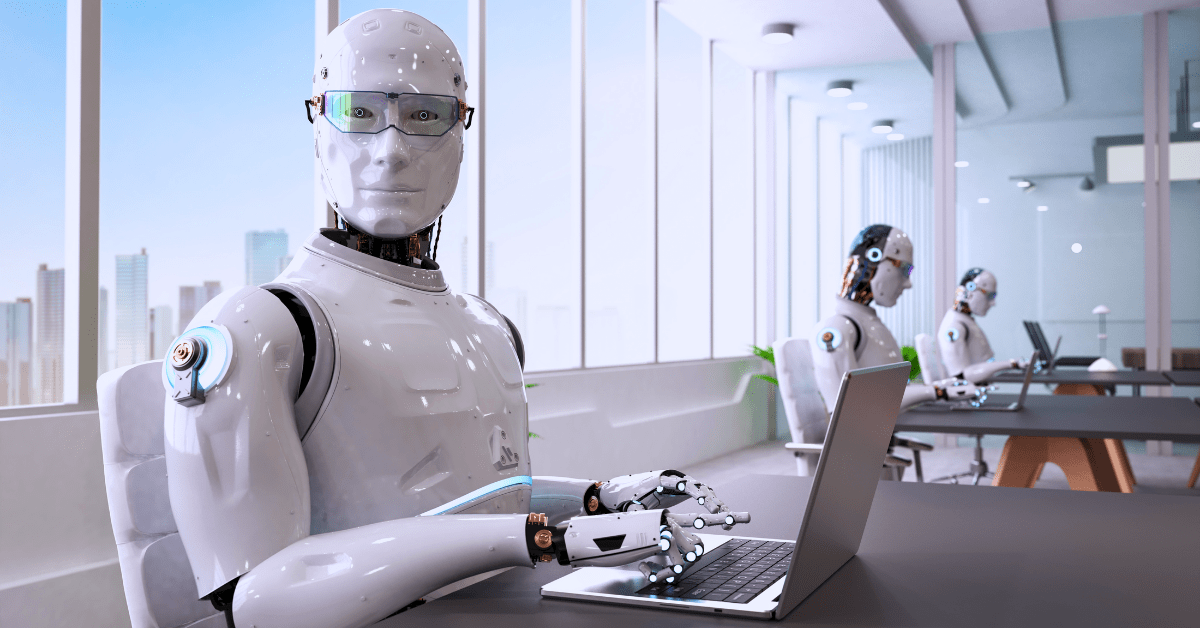Artificial Intelligence (AI) is no longer a distant concept reserved for tech experts—it has become a powerful force shaping everyday jobs across industries. From healthcare and education to retail and construction, AI is streamlining processes, enhancing productivity, and redefining how people approach work. Much like choosing a hidden face cap girl dp, where subtle details reflect deeper identity, AI’s influence on jobs often reveals itself in small but transformative ways. Let’s explore how AI is impacting different aspects of the workforce and what the future holds.
Automation In Routine Roles
AI excels at handling repetitive, data-driven tasks. In industries like manufacturing and logistics, machines powered by AI are managing assembly lines, quality checks, and inventory systems with efficiency and precision. For workers, this shift means fewer manual tasks and more focus on higher-level responsibilities.
At the same time, AI-driven job boards and platforms—similar in function to —are helping companies and individuals match with opportunities faster, proving that automation benefits hiring as well as daily operations.
Personalized Customer Service
Customer service has been transformed by AI through chatbots, voice assistants, and predictive analytics. These tools handle common inquiries, process orders, and even anticipate customer needs. Businesses gain efficiency, while employees are freed up to focus on more complex problem-solving and relationship-building.
This human-centered approach ensures that technology supports people rather than replacing them, creating hybrid roles where empathy and expertise remain vital.
Emotional Impact Of Workplace Change
AI doesn’t only reshape tasks—it also alters how people feel about their jobs. For some, AI inspires optimism and excitement about the future. For others, it raises concerns about job security and change. This emotional spectrum is much like the expressions captured on https://mysadshayari.com, where feelings of hope, uncertainty, and reflection coexist. Understanding and addressing these emotions is essential as industries adapt to AI-driven transformations.
Real Estate And Property Management
The real estate industry is also embracing AI, particularly in property valuation, predictive analytics, and smart home technologies. AI tools can analyze neighborhood data, forecast pricing trends, and streamline client interactions. These innovations make property transactions faster and more transparent.
For investors and homeowners seeking to buy and sell homes, AI creates efficiencies in matching listings with buyers, managing documents, and predicting market shifts, making the process smoother than ever before.
Education And Upskilling Opportunities
As AI reshapes jobs, the demand for new skills grows. Lifelong learning and continuous upskilling are becoming essential for professionals in every field. Online platforms, virtual simulations, and AI-powered learning tools allow employees to adapt quickly to evolving job requirements.
This shift underscores the importance of adaptability, as traditional roles evolve into hybrid jobs blending human creativity with machine efficiency.
Healthcare And Human-Centered AI
In healthcare, AI assists doctors with diagnosis, patient monitoring, and administrative tasks. Machine learning models can detect patterns in medical data, improving accuracy and treatment outcomes. While machines handle data, healthcare professionals focus on empathy, care, and human interaction.
This synergy ensures that AI complements medical practice rather than replacing the human touch, showing that technology and compassion can work hand-in-hand.

Dining, Retail, And Lifestyle Roles
Restaurants and retail businesses are also seeing AI integration, from automated checkout systems to personalized recommendations. Smart systems help businesses streamline operations while offering customers better experiences.
For those exploring food-related trends, platforms like www.dinepedia.com.au highlight how AI-driven dining apps enhance menu planning, reservations, and customer satisfaction. These changes illustrate how technology enriches even lifestyle-oriented jobs and industries.
Ethical Considerations In AI
As AI spreads into daily work, ethical concerns grow. Issues such as bias in algorithms, data privacy, and job displacement must be carefully managed. Companies must ensure transparency and fairness, while governments need policies that balance innovation with worker protection.
For employees, embracing AI means learning how to work alongside technology while advocating for ethical practices that ensure inclusivity and equity.
Preparing For The Future Workforce
The future of work with AI is not about replacement but transformation. While some jobs will disappear, many new ones will emerge—roles that require human judgment, creativity, and interpersonal skills. Preparing for this future involves fostering adaptability, curiosity, and collaboration.
Businesses, educators, and policymakers must work together to ensure people are equipped for these changes, creating environments where AI enhances productivity without diminishing human dignity.
Final Thoughts
AI is reshaping the workplace in profound ways, from automation and real estate to healthcare and dining. The key lies in adapting to change with openness and resilience. By blending human strengths with machine efficiency, the future of work promises opportunities for growth and innovation.
Much like a thoughtful choice that reveals hidden depth, integrating AI into everyday jobs is about intentional, meaningful transformation. For workers and businesses alike, the future holds the chance to thrive—not just survive—in an AI-powered world.
